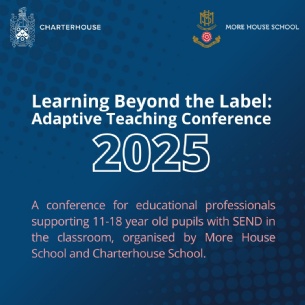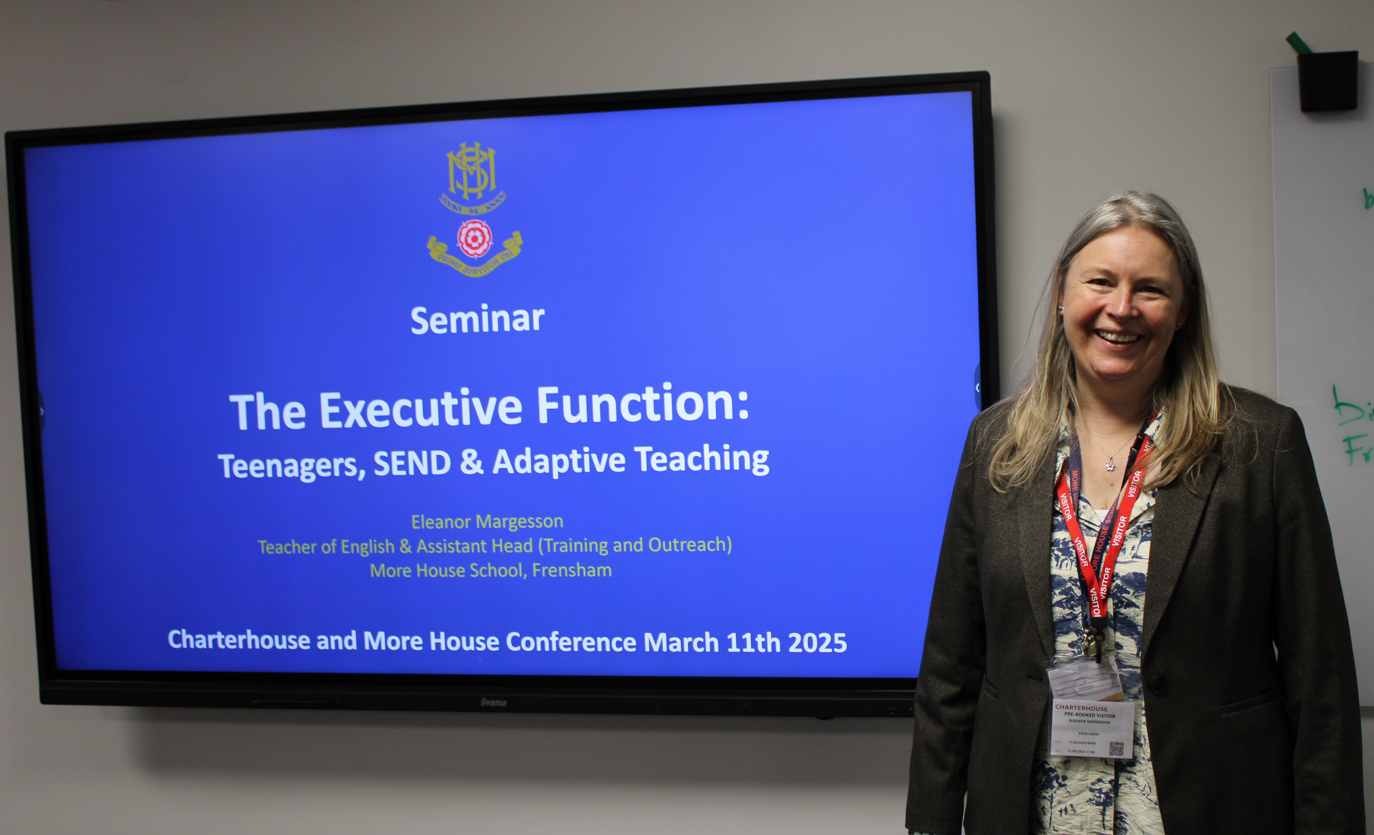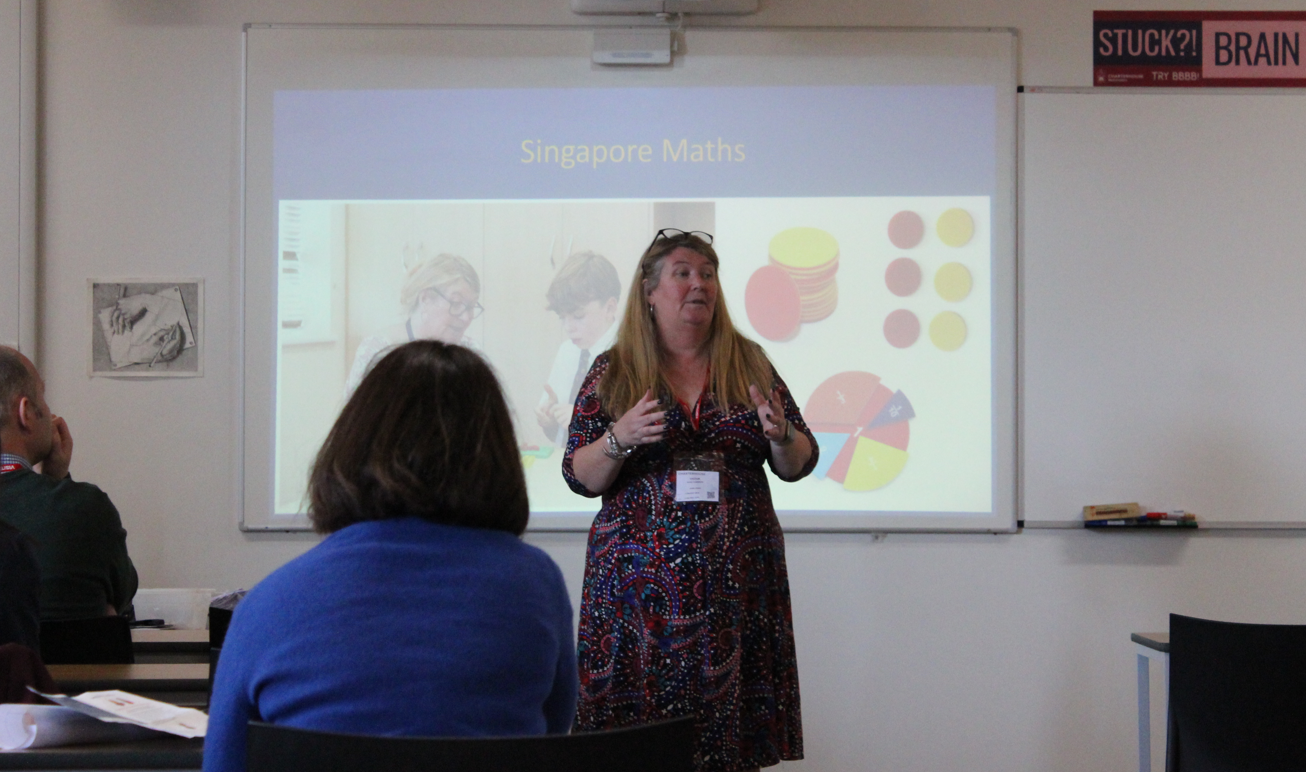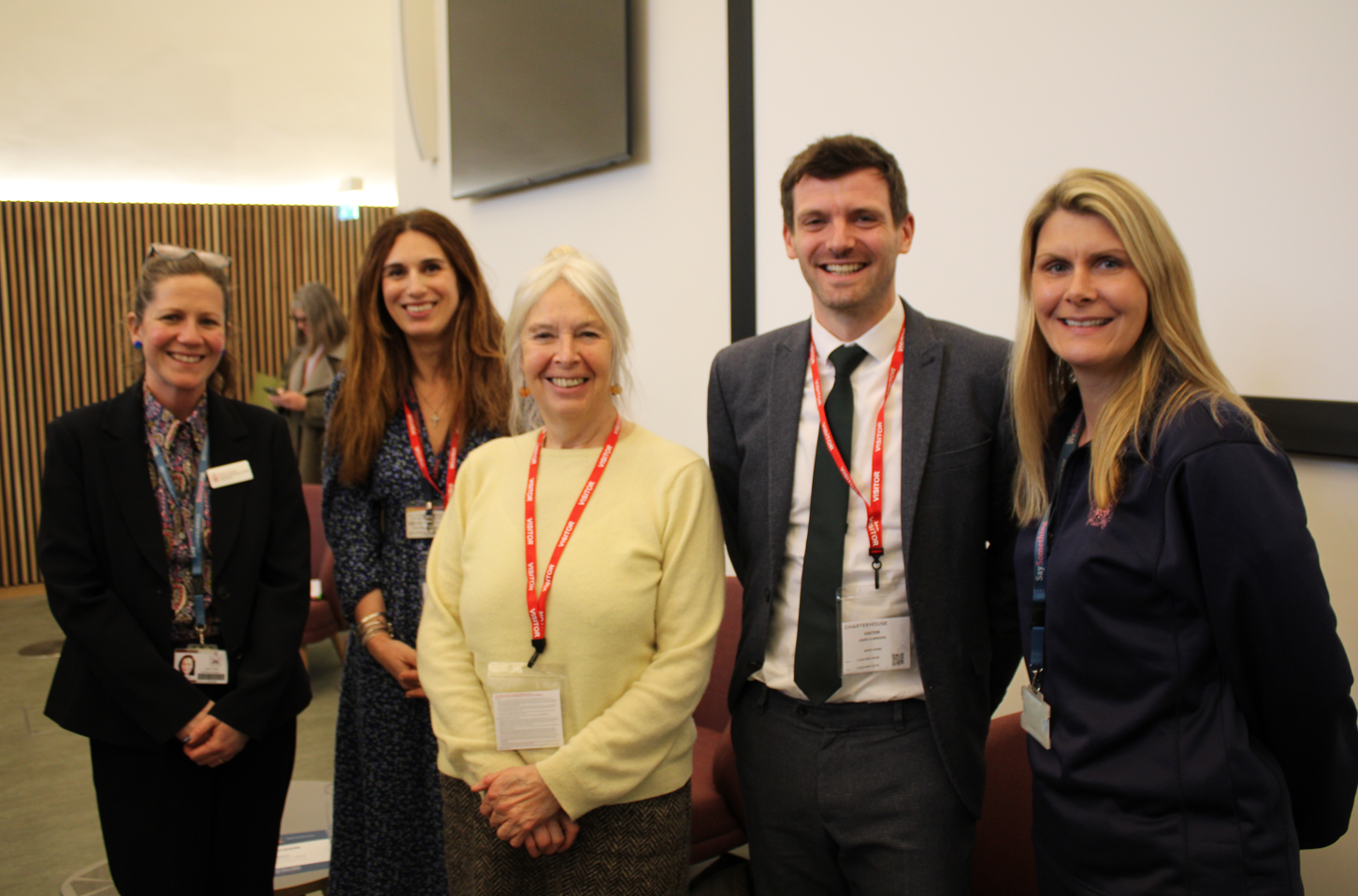Learning Beyond the Label conference 2025

Learning Beyond the Label 2025
Adaptive Teaching Conference held by More House School and Charterhouse School.
On Tuesday 11th March 2025, More House School and Charterhouse hosted the second annual Adaptive Teaching Conference - Learning Beyond the Label. This event brought together over 100 professionals from schools across the UK to discuss current research into education and neurodiversity, and share practical, evidence-based strategies for supporting students with Special Educational Needs (SEND) in schools. Building on the success of the inaugural 2024 conference, this year saw a significant increase in participation, underscoring the growing commitment within the educational community to make learning successful for neurodiverse learners. Learning Beyond the Label was designed to provide an informative, hands-on learning experience for educators looking to enhance their knowledge and skills. Held at the Charterhouse School, the conference began with a warm welcome to delegates who were greeted with hot coffee, pastries, and the opportunity to network with peers. The event kicked off at 9am, with attendees filling nearly every seat in the lecture theatre. Dr. Alex Peterken, Headmaster of Charterhouse School, opened the conference with remarks commenting on the impressive turn out of professionals evidencing the need felt by schools to focus on research and evidence-led solutions and resources to address the difficulties around supporting SEND in UK schools.
Keynote Speakers: Current research in the field of education and neurodiversity
The first keynote speaker of the day, Professor Joni Holmes, set the tone for the conference with a compelling presentation on the limitations of the traditional diagnostic framework for neurodiverse students. A Professor of Psychology at the University of East Anglia and Affiliated Senior Scientist at the University of Cambridge’s Medical Research Council’s Cognition and Brain Sciences Unit, Professor Holmes provided an update on ongoing research from the Centre for Attention, Learning, and Memory (CALM). Her talk focused on the transdiagnostic approach which challenges the reliance on specific diagnostic labels (such as ADHD, dyslexia, or autism) to determine the support needs of neurodiverse learners. Instead, Professor Holmes emphasised the importance of focusing on core cognitive skills that are crucial for learning, regardless of a student's diagnosis. She shared some exciting developments from the CALM research, including how this approach can be applied in classrooms to create adaptive support strategies that meet the needs of all learners without disadvantaging those who require less support. The Learning Beyond the Label approach, co-developed by More House School and the University of East Anglia, seeks to empower teachers to provide targeted support based on these key cognitive areas, rather than on a student's diagnostic label. This approach promotes adaptive teaching and learning, ensuring that all students, regardless of their special educational needs, can thrive in school.
The second keynote speaker, Professor Jane Hurry, offered insights into her research on the role of emotional regulation in secondary-aged pupils with features of ASD and/or ADHD. Professor Hurry, an Emeritus Professor of Psychology at University College London, is a Co-Investigator on the RE-STAR project - a four-year study exploring how emotional regulation impacts mental health in neurodiverse adolescents. Professor Hurry’s presentation explored some findings of this ongoing research, highlighting the critical role schools play in supporting emotional regulation, particularly in the context of mental health challenges such as depression and anxiety. Her talk underscored the need for schools to provide structured emotional support and create environments that nurture mental wellbeing, especially for students with neurodevelopmental differences.
Practical Learning Seminars
After a delicious lunch, delegates participated in practical seminars designed to equip them with strategies and approaches to support pupils with SEND in their classrooms. These sessions allowed educators to engage with new ideas, reflect on their current practices, and collaborate on how to support the diverse needs of neurodiverse learners.
Mrs Eleanor Margesson (Director of Training & Outreach Assistant Head, Training & Outreach, More House School) led a highly popular seminar on the executive function and adaptive teaching. She shared a variety of strategies for supporting language, attention, working memory, and processing, all grounded in the Learning Beyond the Label approach. Using real-life examples from More House School, Eleanor demonstrated how these strategies are implemented to help all pupils access the learning and acquire the skills to be successful. At More House School, flexibility and resilience are at the core of our approach. We understand that, while it’s important to be ambitious for students with dyslexia and other language-related SEND, it’s equally important to remain supportive and realistic when things do not go as planned. The school’s work, underpinned by the CALM research project, supports the Learning Beyond the Label model which focuses not on diagnostic labels, but on supporting four key areas which are crucial for learning - Language, Attention, Memory, and Processing (LAMP). By understanding how difficulties in these areas affect students’ learning, More House School adapts its practices effectively across all aspects of school life, ensuring that every student’s needs are met. Eleanor also provided in-depth guidance on using the Class Mapping Tool to assess and respond to the specific needs of students in a whole-class setting. As part of More House School’s ongoing mission to share the Learning Beyond the Label model with the wider educational community, online courses and resources have been co-developed with the university of East Anglia to support educators in providing effective teaching for neurodiverse students. The online training package and Class Mapping Tool, offer practical, evidence-based resources to help teachers implement tailored support strategies in their own classrooms.


In a seminar on Mathematics Beyond the Label, Mrs Julie Clarkson (Head of Mathematics, More House School) explored how the teaching of mathematics can be adapted to support neurodiverse learners. She gave some examples of how resources and manipulatives are used at More House School to support the learning of new concepts. She also shared some poignant statistics on the prevalence of maths-related learning difficulties, shedding light on the challenges this poses for schools. Julie’s session offered valuable insights into how mathematics teaching can be adapted and accessible for all learners.
Panel Discussion: Mental Health and SEND
The conference also featured a panel discussion on the impact of the RE-STAR project, with an emphasis on adolescent mental health. Led by pastoral leads from More House School and Charterhouse, alongside Professor Jane Hurry, the panel explored the broader implications of the RE-STAR study’s findings. Topics ranged from the potential overuse or misinterpretation of the term “anxiety” in schools and the impact of behaviour policies, to the role of social media in shaping students’ mental health. The discussion sparked thought-provoking conversations about the challenges schools face in supporting the mental wellbeing of neurodiverse students, particularly in the face of rising mental health concerns.

With over 100 in attendance, this conference was a fantastic opportunity for educational professionals to network and get to know others working with children and young people with special educational needs. This learning environment facilitated countless discussions based on sharing best practice and exploring each other’s experiences of supporting SEND in different contexts. Supported by current research evidence and practical examples, Learning Beyond the Label 2025 was a reminder of the importance of looking beyond diagnostic labels and focusing on the cognitive skills that underpin all learners' success. By equipping educators with the knowledge, tools, and support to meet the needs of neurodiverse students, we can continue to create adapted, supportive learning environments where every student can succeed.







